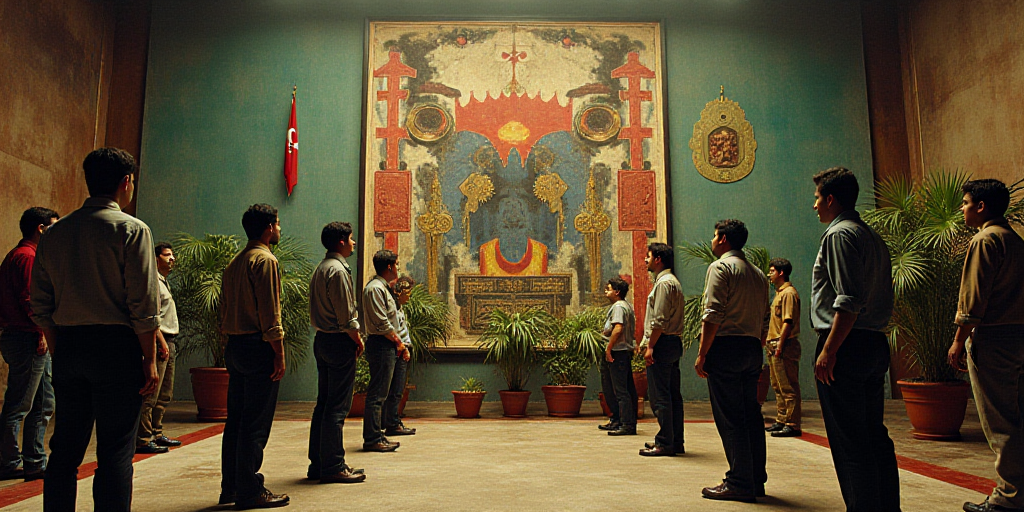Background on the Instituto Nacional Electoral (INE)
The Instituto Nacional Electoral (INE) is Mexico’s independent, autonomous electoral body responsible for organizing elections and ensuring their transparency. Established in 2014, the INE plays a crucial role in Mexico’s democratic process by overseeing federal, state, and local elections.
Budget Proposal Details
The INE recently approved a proposed budget of nearly 26 billion pesos for 2026, which is a 2.5% reduction from the 2025 budget. This decision comes despite the INE having a heavier workload in 2025, organizing three elections: local elections in Veracruz and Durango, as well as the first national judicial election.
Allocation of Funds
The proposed budget includes 15,100 million 27,506 pesos for regular operations and maintaining the institute. Additionally, it allocates funds for salaries of all INE members, among other expenses. The proposal also includes a precautionary budget of 3,119 million 405,112 pesos for a possible popular consultation and mandatory allocations to six national political parties.
The total requested budget for 2026, excluding funds for political parties, amounts to over 18.21 billion pesos.
Consejeros’ Perspectives
During the budget discussion, INE’s consejera presidenta Guadalupe Taddei Zavala emphasized the importance of the INE’s role in Mexico’s democracy and the necessary resources for its functioning. She highlighted the INE’s adaptability in the face of social changes and structural reforms.
Consejero Uuc-kib Espadas pointed out that the INE’s budget accounts for only 0.2% of the total government expenditure, stressing that reducing this cost would jeopardize electoral integrity and hinder social spending.
Consejera Carla Humphrey expressed concern over the limited resources allocated to the Unidad de Igualdad de Género y No Discriminación, while other areas received more funding.
Reversal of 45 Judicial Appointments
The INE’s Consejo General was compelled to reverse its decision on 45 judges and magistrates who were deemed ineligible due to not meeting the minimum average requirement or violating parity criteria during candidate distribution.
Amidst criticism of the Tribunal Electoral’s rulings, the INE distributed majority certificates to 19 judges previously deemed ineligible. Among them, 12 lacked a minimum 9 average in specialty subjects, two had an 8 average in their undergraduate degree, and five were disqualified based on parity criteria.
Consejera Dania Ravel noted the contradictory criteria in various judicial appeal sentences.
Key Questions and Answers
- What is the INE and why is its budget important? The Instituto Nacional Electoral (INE) is Mexico’s autonomous electoral body responsible for organizing elections. Its budget ensures the proper functioning of this essential democratic institution.
- What is the proposed budget for 2026? The INE has proposed a budget of nearly 26 billion pesos for 2026, which is a 2.5% reduction from the 2025 budget.
- How will the funds be allocated? The proposed budget includes funds for regular operations, salaries, and various projects aimed at strengthening democratic culture, gender equality, and data protection.
- Why are some consejeros concerned about the budget allocation? Some consejeros, like Carla Humphrey, are worried that certain areas, such as the Unidad de Igualdad de Género y No Discriminación, are receiving insufficient resources compared to other areas.
- What is the significance of reversing 45 judicial appointments? The INE’s decision to reverse the ineligibility of 45 judges and magistrates highlights the complexities involved in ensuring fair and transparent election processes.






